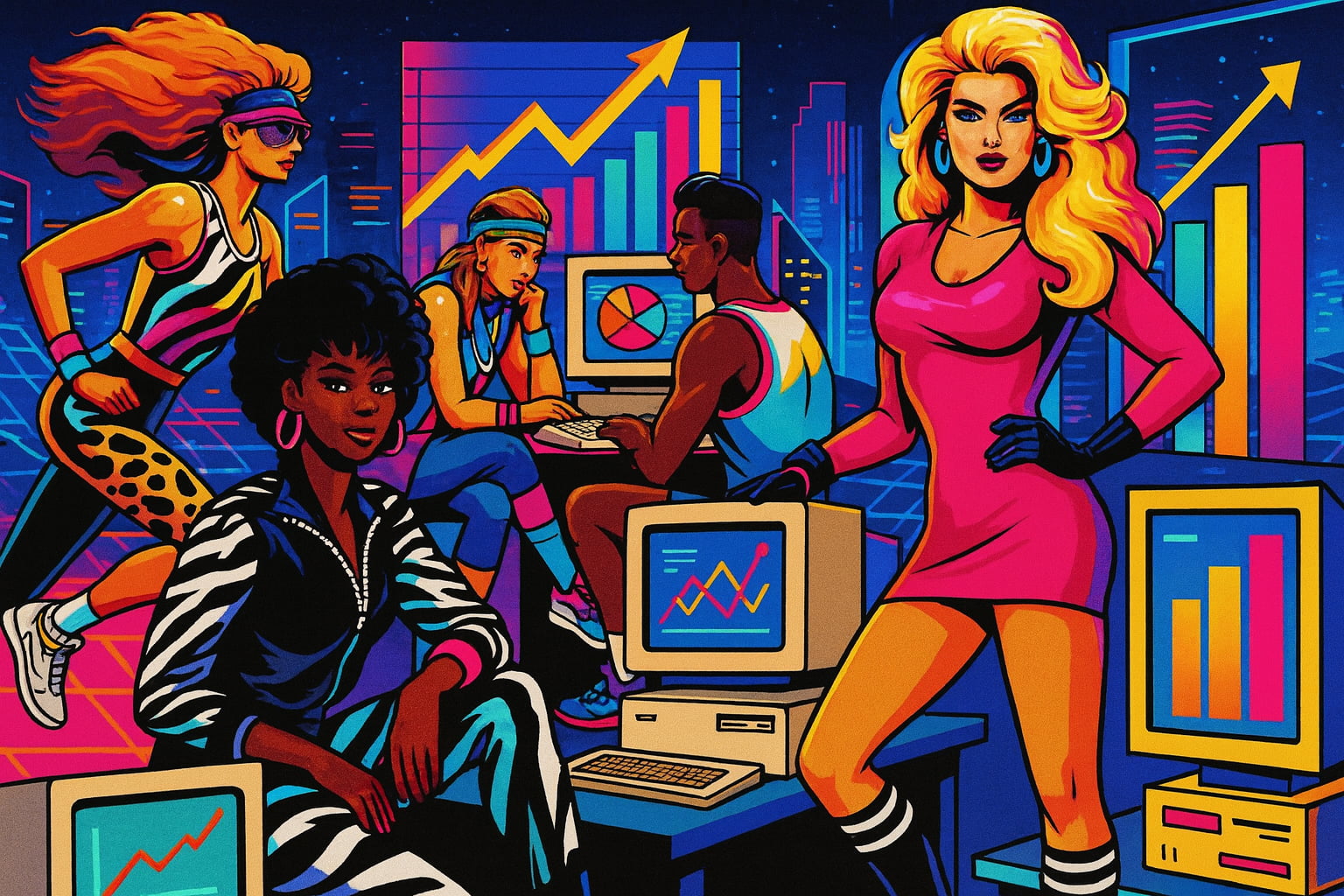10 Best Marketing Automation Platforms for 2025



10 Best Marketing Automation Platforms for 2025
Marketing automation has become essential for businesses looking to scale their marketing efforts, nurture leads, and drive conversions efficiently. The right platform can transform how you engage with customers across multiple channels, from email campaigns to social media management.
In this guide, we'll explore the top 10 marketing automation platforms that are helping businesses maximize their ROI and streamline their marketing operations.
HubSpot
HubSpot stands out as one of the most comprehensive marketing automation platforms available, offering an intuitive interface combined with powerful automation capabilities.
Built on an inbound marketing philosophy, HubSpot provides tools for email marketing, lead scoring, CRM integration, and detailed analytics. Its free tier makes it accessible for startups, while enterprise features scale with growing businesses.
The platform excels at creating personalized customer journeys and offers robust reporting to track campaign performance across all touchpoints.
Marketo Engage
Marketo Engage, an Adobe company, is a enterprise-grade marketing automation solution designed for complex B2B marketing needs. It offers sophisticated lead management, account-based marketing capabilities, and advanced attribution modeling.
Marketo's strength lies in its ability to handle intricate multi-touch campaigns and provide deep insights into customer behavior. The platform integrates seamlessly with major CRM systems and offers extensive customization options for large-scale operations.
ActiveCampaign
ActiveCampaign combines email marketing, automation, and CRM functionality in an affordable, user-friendly package. It's particularly strong in creating conditional workflows and personalized customer experiences.
The platform offers over 850 integrations and features powerful segmentation capabilities that allow businesses to target specific audience groups with precision. ActiveCampaign's visual automation builder makes it easy to design complex customer journeys without technical expertise.
Salesforce Marketing Cloud
Salesforce Marketing Cloud is a enterprise solution that provides comprehensive marketing automation across email, mobile, social media, and advertising channels.
It leverages artificial intelligence through Einstein AI to optimize send times, predict customer behavior, and personalize content at scale. The platform's Journey Builder allows marketers to create sophisticated, multi-channel customer experiences.
Its deep integration with Salesforce CRM provides unparalleled data synchronization for sales and marketing alignment.
Mailchimp
Mailchimp has evolved from a simple email service provider into a full-fledged marketing automation platform. It offers user-friendly automation workflows, landing pages, social media management, and basic CRM functionality.
Mailchimp's strength is its accessibility and ease of use, making it ideal for small to medium-sized businesses. The platform provides pre-built automation templates for common scenarios like welcome series, abandoned cart recovery, and post-purchase follow-ups.
Pardot
Pardot, also part of the Salesforce ecosystem, focuses specifically on B2B marketing automation. It excels at lead generation, nurturing, and scoring, with robust features for tracking prospect engagement across multiple touchpoints.
Pardot's integration with Salesforce CRM creates a seamless handoff between marketing and sales teams. The platform offers advanced email marketing, dynamic content personalization, and comprehensive ROI reporting that helps marketers demonstrate the value of their campaigns.
Klaviyo
Klaviyo is a data-driven marketing automation platform built specifically for e-commerce businesses. It provides powerful segmentation based on customer behavior, purchase history, and predictive analytics.
Klaviyo's strength lies in its ability to create highly targeted campaigns that drive revenue through personalized product recommendations and timely messaging. The platform integrates deeply with major e-commerce platforms like Shopify, WooCommerce, and Magento.
Omnisend
Omnisend specializes in omnichannel marketing automation for e-commerce, combining email, SMS, push notifications, and social media retargeting in unified campaigns.
The platform offers pre-built automation workflows designed specifically for online retailers, including cart abandonment, browse abandonment, and post-purchase campaigns. Omnisend's visual campaign builder makes it easy to coordinate messaging across multiple channels while maintaining consistent brand communication.
GetResponse
GetResponse provides a well-rounded marketing automation platform with strong email marketing capabilities, webinar hosting, and conversion funnel building. The platform offers an intuitive visual automation builder that allows marketers to create sophisticated workflows based on user behavior and engagement.
GetResponse also includes landing page creation, A/B testing, and comprehensive analytics. Its webinar functionality sets it apart from many competitors, making it ideal for businesses that use webinars as part of their marketing strategy.
Autopilot
Autopilot offers a visually-oriented approach to marketing automation with its canvas-based journey builder. The platform makes it easy to map out customer journeys and visualize how leads move through different stages of engagement.
Autopilot supports multi-channel campaigns across email, SMS, and in-app messaging. It integrates with numerous third-party tools and provides straightforward analytics to track campaign performance. The platform is particularly suited for teams that prefer a more visual, design-thinking approach to automation.
Essential Features Each of the Best Marketing Automations Have
The most effective marketing automation platforms share several core features that enable businesses to engage customers across multiple touchpoints, personalize experiences, and drive measurable results.
Understanding these essential capabilities helps you evaluate which platform best fits your business needs and marketing strategy.
Email Marketing Sequencing Automation
Email marketing sequencing is the foundation of any marketing automation platform (https://help.blaze.ai/en/articles/11725571-about-blaze-autopilot). This feature allows you to create automated email series that are triggered by specific actions, behaviors, or time intervals.
Effective sequencing enables you to deliver the right message at the right time, whether it's a welcome series for new subscribers, educational content for leads in the consideration phase, or re-engagement campaigns for inactive contacts.
The best platforms offer drag-and-drop builders, conditional logic, dynamic content insertion, and A/B testing capabilities. Advanced sequencing features include send time optimization, which uses AI to determine when individual recipients are most likely to engage with emails.
Abandoned Cart Automation
For e-commerce businesses, abandoned cart automation is a critical feature that can recover significant lost revenue. This automation tracks when customers add items to their shopping cart but leave without completing the purchase, then automatically sends targeted reminder emails.
Effective abandoned cart campaigns typically include product images, personalized messaging, and sometimes incentives like discount codes to encourage purchase completion.
The best platforms allow you to create multi-step sequences with varying time delays and can incorporate dynamic pricing, inventory levels, and personalized product recommendations to maximize conversion rates.
Personalization & Journey Automation
Personalization and journey automation represent the evolution from basic email blasts to sophisticated, individualized customer experiences. This feature enables you to create dynamic content that adapts based on customer data, behavior, preferences, and lifecycle stage.
Journey automation maps the entire customer experience across multiple touchpoints and channels, automatically adjusting the path based on how individuals interact with your brand.
Advanced platforms use predictive analytics and machine learning to anticipate customer needs and optimize journey paths in real-time. This includes dynamic website content, personalized product recommendations, behavior-triggered messages, and adaptive email content that changes based on recipient attributes.
Lead Nurturing Personalization
Lead nurturing personalization focuses specifically on guiding prospects through the sales funnel with tailored content and messaging.
This feature includes lead scoring to identify the most qualified prospects, segmentation based on engagement levels and demographic data, and automated workflows that deliver relevant content based on where leads are in their buying journey.
The best platforms enable progressive profiling, which gradually collects more information about leads over time without overwhelming them with lengthy forms. Lead nurturing automation also includes alerts to sales teams when leads reach certain engagement thresholds, ensuring timely follow-up on hot prospects.
Social Media Marketing Automation
Social media marketing automation extends your reach beyond email to manage and optimize your social media presence (https://www.blaze.ai/blog/social-media-automation-tools).
This feature typically includes scheduling posts across multiple platforms, monitoring brand mentions and engagement, and creating automated responses or workflows based on social interactions.
Advanced capabilities include social listening to track relevant conversations and competitor activity, automated posting of blog content or promotional offers, and integration with advertising platforms for retargeting campaigns.
The best platforms provide unified analytics that show how social media efforts contribute to overall marketing goals and customer journeys.
SEO Auditing Automation
SEO auditing automation helps you maintain and improve your search engine visibility through regular technical and content audits. This feature automatically scans your website for common SEO issues like broken links, missing meta descriptions, duplicate content, slow page load times, and mobile responsiveness problems.
Automated SEO tools provide keyword ranking tracking, competitor analysis, and recommendations for optimization opportunities. Advanced platforms offer content optimization suggestions based on target keywords and search intent, backlink monitoring, and automated reporting that tracks SEO performance over time.
This automation ensures your website remains optimized without requiring constant manual checks.
Best All-in-One Marketing Automation Platform
Among all the platforms we've examined, HubSpot emerges as the best all-in-one marketing automation solution.
While other platforms excel in specific niches or channels, HubSpot provides the most comprehensive toolkit that spans email marketing, social media management, content management, SEO optimization, analytics, and CRM integration.
This makes it ideal for businesses looking to consolidate their marketing technology stack and create seamless experiences across the entire customer lifecycle.
What Makes HubSpot Have the Best All-in-One Platform
HubSpot's superiority as an all-in-one platform stems from several key factors that set it apart from competitors. First, its native integration between marketing, sales, and service hubs creates a unified customer database that eliminates data silos and enables truly coordinated customer experiences.
Unlike platforms that bolt on features through third-party integrations, HubSpot's core functionality is built on a single platform architecture, ensuring consistency and reliability.
The platform's visual workflow builder is intuitive enough for marketers without technical skills yet powerful enough to create sophisticated automation sequences.
HubSpot offers robust email marketing with advanced personalization, landing page creation, form builders, and comprehensive analytics all within one ecosystem.
Its content management system allows you to build and optimize websites without needing separate tools, while built-in SEO recommendations help improve search visibility.
HubSpot's reporting capabilities are exceptional, providing customizable dashboards that track performance across all marketing channels and clearly demonstrate ROI.
The platform's free tier offers substantial functionality, making it accessible to startups, while its enterprise features scale elegantly as businesses grow.
Perhaps most importantly, HubSpot's extensive educational resources, certification programs, and active community support make it easier for teams to maximize the platform's potential. The combination of breadth, depth, usability, and scalability makes HubSpot the most complete all-in-one marketing automation solution available.
Wrapping Up
Shopping for the best marketing automation platforms is tricky based on your needs, budget, and more, but these top 10 are the best marketing automation platforms worth exploring to propel your business forward.
Whether you're a small e-commerce business looking for cart abandonment recovery, a B2B company needing sophisticated lead nurturing, or an enterprise requiring omnichannel orchestration, there's a platform on this list that can transform your marketing operations.
Take time to evaluate your specific requirements, test platforms through free trials, and consider how each solution integrates with your existing technology stack (https://www.blaze.ai/blog/ai-marketing-strategy).
The right marketing automation platform won't just save time—it will enable you to create more personalized, effective campaigns that drive real business growth (https://www.blaze.ai/blog/how-marketing-agencies-use-blaze).


.svg)